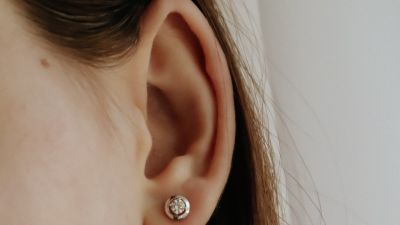Tinnitus could be made worse by Covid-19 research suggests

Coronavirus symptoms worsened tinnitus for 40% of people with the hearing condition, a study has indicated.
Researchers from Anglia Ruskin University carried out an online survey among 3,103 people with tinnitus from 48 countries, with most of them from the UK and America.
They found Covid-19 symptoms exacerbated tinnitus in 40% of respondents, made no change in 54%, and improved the condition in 4%.
Their report said that, although the study focused on people with pre-existing tinnitus, a small number of participants reported that their condition was triggered when they developed coronavirus symptoms.
The researchers said this suggests that tinnitus could be a long Covid symptom in some cases.
The study also indicated that stress factors such as fear of catching Covid-19, financial concerns, loneliness and trouble sleeping made tinnitus more bothersome in 32% of respondents.
Tinnitus is the name for hearing noises that are not caused by an outside source.
It can sound like ringing, buzzing or hissing, among other things.
Lead author Dr Eldre Beukes, a research fellow in Vision and Hearing Sciences at Anglia Ruskin University, said: “The findings of this study highlight the complexities associated with experiencing tinnitus and how both internal factors, such as increased anxiety and feelings of loneliness, and external factors, such as changes to daily routines, can have a significant effect on the condition.
“This is something that needs to be closely examined by both clinical and support services.”
The study indicated that 46% of UK respondents believe that their tinnitus is being made worse by social distancing measures introduced to help control the spread of the virus.
These measures have led to significant changes to work and lifestyle routines.
This compares with 29% of respondents in North America.
The study was conducted with the support of the British Tinnitus Association and the American Tinnitus Association.
David Stockdale, chief executive of the British Tinnitus Association and a co-author of the study, said: “With the second wave of Covid-19 and the resulting national lockdown likely to increase feelings of stress and isolation, it’s vital that we don’t see the same mistakes as before when it comes to community health provision for people with tinnitus.
“Poor treatment of tinnitus in the early stages often leads to much worse cases and severe tinnitus can have a huge impact on mental health.
“With this in mind, as the Covid-19 second wave takes hold, the healthcare system needs to ensure that anyone who develops tinnitus or experiences a worsening of their condition can access the professional healthcare support they need as quickly as possible.”
Rebecca Edgar, 29, from Clacton-on-Sea in Essex, has had tinnitus since childhood following an infection in her cochlea.
She has not experienced Covid-19 symptoms but said that stress during the pandemic has made her tinnitus “the worst it has ever been”.
“I’m deaf in one ear and I’m so scared that catching Covid-19 could destroy what’s left of my hearing,” she said.
– The study is published in the journal Frontiers in Public Health.